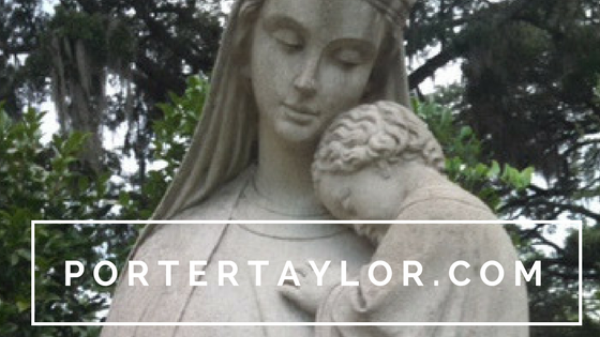Lighting Small Fires
July 9, 2020
+Porter Taylor
Some years ago I was lost. Not geographically. I knew where I was; I just didn’t know where I needed to go or how I could get there if I did. I found myself in what the Desert Mothers and Fathers called “the noon day devil.” It’s when you’ve run through all your good ideas and your favorite verbal quotes and your various ways of denial and it’s just you.
The poet Elizabeth Sewell wrote, “It’s not problems we face. Problems have solutions. It’s some utter deep rooted dilemma.” I think we as a country are in dual deep rooted dilemmas: ravaged by a virus that we cannot or will not get under control; and finally forced to face and deal with the embedded racism that has infected our country since its inception.
I know that our country’s plight is not synonymous with my spiritual issue decades ago, but there is a parallel—at least for me. I went to my spiritual director and after my unloading, he looked at me and said, “Just go straight.” I shook my head and said under my breath, “What does that mean?” Yet it turned out to be very helpful.
What I heard in that statement is to let go of your ways of fooling yourself about what you are doing and what you are not doing with your life. Instead, make an honest deep inventory of your behavior and your motives and think and pray about the kind of person you want to be and the kind of life you want to live and the kind of country you want to live in. Then think of one action you can make to move you towards that.
I write this meditation to remind myself. Because what often happens with me is that I throw myself into a cause but in time my passion runs out, and I follow some diversion. What I’ve learned is that in the long run what matters is less my emotional passion and more my habitual actions over time. To lessen the deaths of COVID 19 or to diminish the racism that infects our country demands a cultural shift, which is a long term project.
I would suggest reading Donna Schaper’s work Living Well While Doing Good. She sets forth many suggestions of how to be intentional over a lifetime in order to make change through our own daily behavior. She writes, “The balance comes from lighting simpler fires. It means doing small things well” because what matters is the deep change that can take a lifetime.
Let me be clear. Sometimes we need large public demonstrations. Where would we be without the march across the Edmund Pettus Bridge? However, if we are dedicated to being agents of God’s will being done on earth as in heaven, then change becomes a lifetime proposition. Thus, we must ask “What will sustain our intentions once the public fervor quiets down?” As Donna Schaper writes, “We need to light small fires that we can keep burning over a lifetime instead of trying to set the whole forest ablaze.” When my director said just go straight, he meant to live a more intentional life. What actions are worth doing every day and what must I let go of in order for those to become a habit which becomes a disposition which becomes part of one’s character and enables one to be an agent of long term change?
My concern is that the endemic racism of this country is so embedded that in time, I will go back to my daily life and get stuck in what Thoreau called “quiet lives of desperation.” Therefore, I am seeking repeatable actions I can take to maintain my commitment to be an agent of transformation for my sake and the world’s sake and Christ’s sake.
